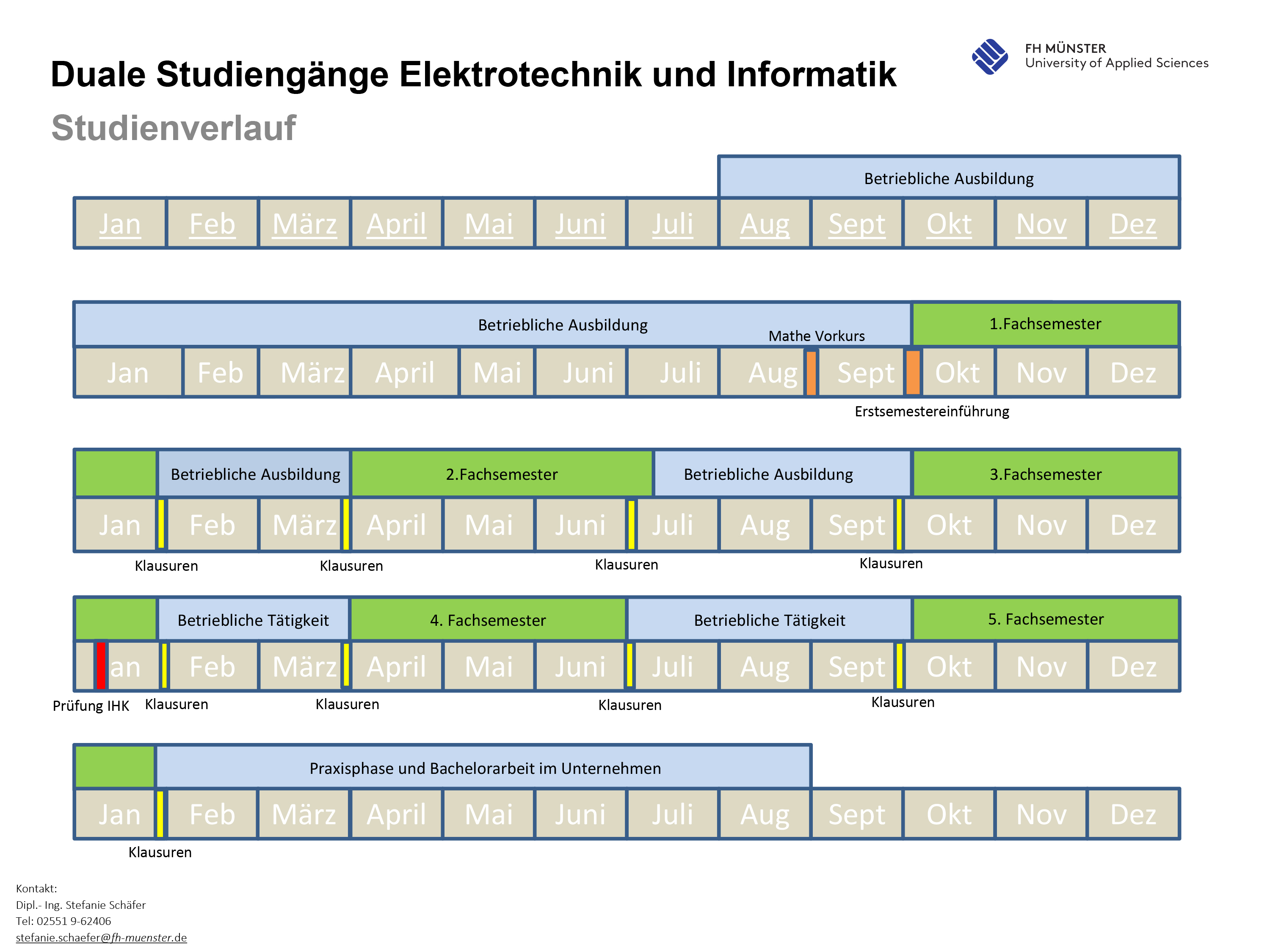How does the dual study programme work?
The standard period of study for the training-integrated degree programme is eight semesters. The application for a place on the programme is made online. You can enrol for the winter semester from the beginning of May.
What are the contents of the programme?
The study content of the dual study programmes is identical to the content of our regular Bachelor's degree programmes in Electrical Engineering and Computer Science.



